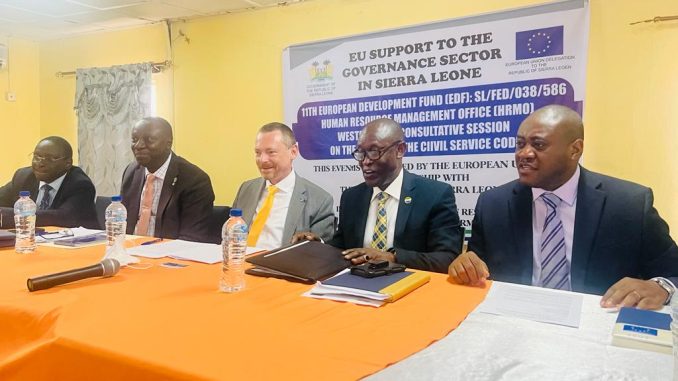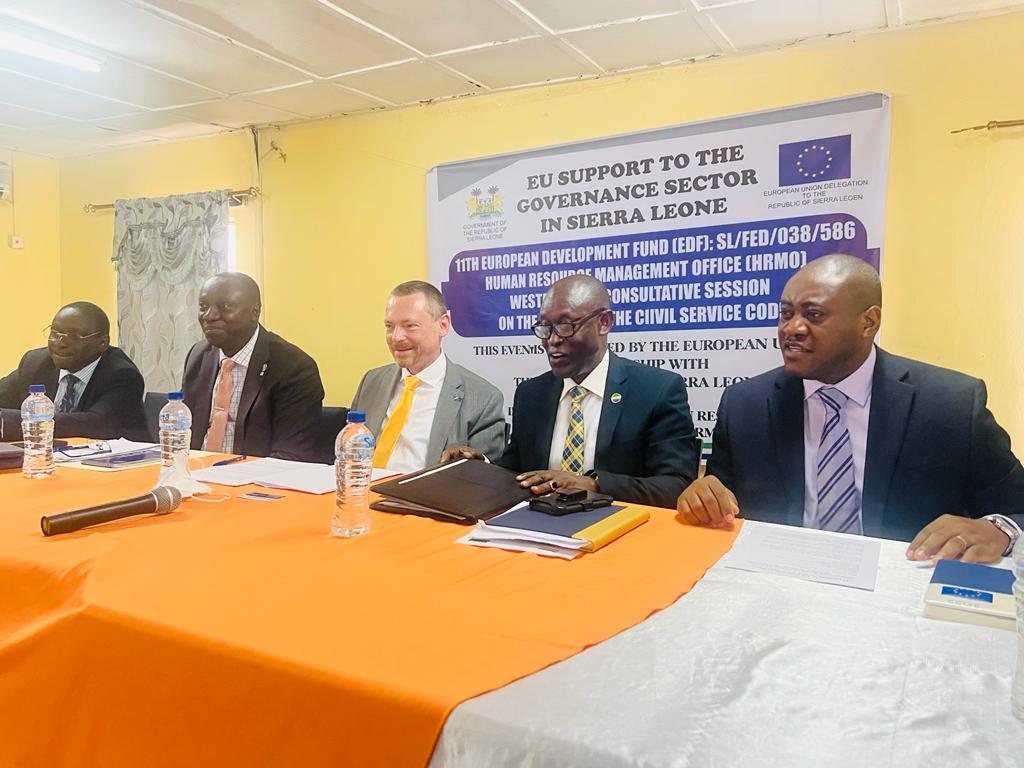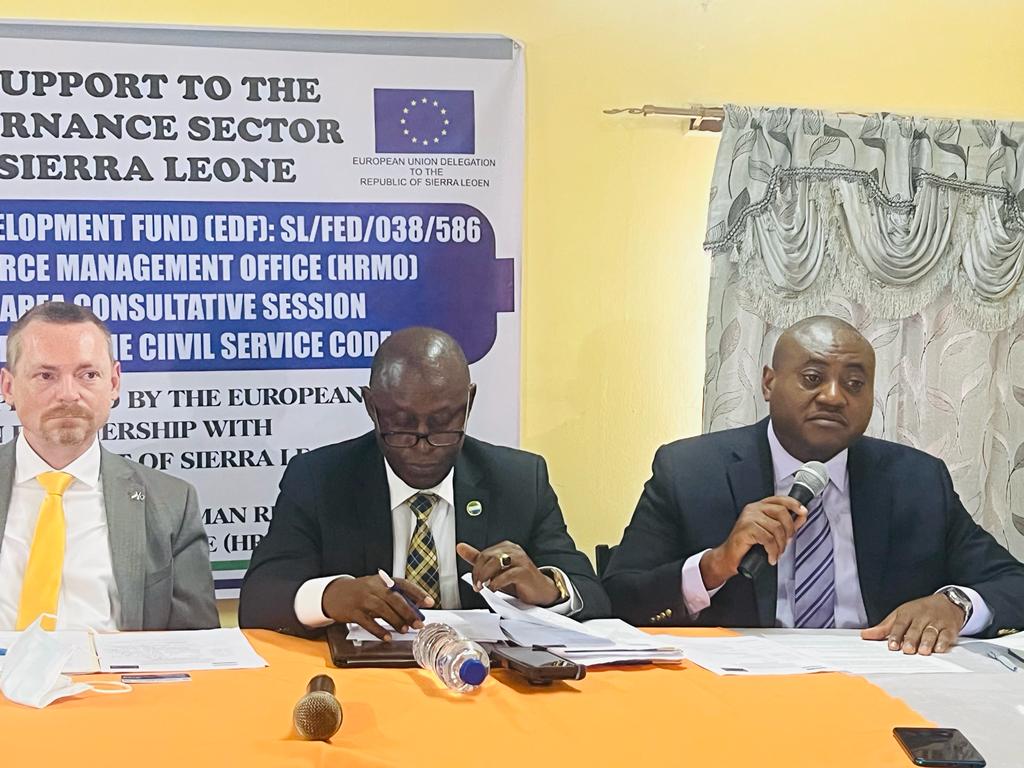
As part of the European Union (EU) support to the Governance Sector in Sierra Leone, Human Resource Management Office (HRMO) and Public Service Commission (PSC) have brought together Civil and Public Servants in the Western Area of Sierra Leone to a one day meeting to review the Civil Service Code, Regulations and Rules at the Civil Service Training College in Freetown.
Similar consultative meetings have been held in all 14 districts across the country providing opportunity for public and civil servants in regions and districts to better articulate challenges, grievances, and provide a platform to address their problems to help enhance the productivity of the civil service workforce.
Delivering his statement, National Authorising Office Director Ambrose James said the NAO is always prepared to support line Ministries and Agencies in achieving their objectives for EU funded projects. He commended the Human Resources Management Office and Public Service Commission for taking the bold step to start the review and modification of the Civil Service Code, Regulations and Rules as this will help bring it in line with modern civil service management practices.
He said it is important to review the Civil Service Code, Regulations and Rules because outdated policies put institutions at risk, old policies may be non-compliant with new laws and regulations, to ensure policies are consistent and effective and regular review keep institutions up to date with regulations, technology, and best practices.
Head of European Union Delegation to Sierra Leone Manuel Muller said civil servants are important for the running of the state. He said government come and go but Civil Servants stay. He encouraged them to participate in policies that affect their lives, performance and capacity.
Manuel Muller wished participants a productive outcome that will lead to a better service delivery.
Chairman Public Service Commission, Kalilu O. Bah said the Public Service Commission is both the entrance and exit door for Civil Servants. He thanked the EU for supporting the review of the Civil Service Code, Regulations and Rules
Secretary to Cabinet and Head of Civil Service, John Sumailah thanked the EU and Government of Sierra Leone for providing funds for the review exercise.
He said the review is being undertaken under emerging issues that needs to be addressed to enhance the performance of Civil Servants. He urged participants to look at the following points during their review: why the review, when to review, how to identify issues to be reviewed and how to update policies and codes.
Sheku Sumaila advised participants to be mindful about the financial implications about certain areas to be reviewed during their deliberations
Delivering his keynote address, Director General Human Resource Management Office (HRMO) Ansu Tucker said, he felt gratified to welcome participants to the first review of the civil service code, regulations and rules since it came into effect in 2011. He said the review of the Civil Service Code is a significant milestone in our national development agenda as articulated in sub-cluster 4.7 of the Medium Term National Development Plan (MTNDP) 2019-2023 which identifies strengthening Public Service Delivery as one of the priority areas. He further stated that in the MTNDP the following targets are set out:
- By 2023, Public Service Bill shall be enacted, Civil Service Code shall be fully reviewed, and Public Service Regulation, 1982 shall be reviewed, modified and published.
- By 2023, the process of personnel recruitment to retirement from manual to an automated system (PRMS) updated by 80%
Ansu Tucker mentioned that Civil Service Reform is one of the components of the EU Governance Support which an objective to improve civil service institutional capacity, improve human and financial resources of the civil service and enhanced public service delivery.
Ansu ended by saying a number of lacunas have been identified in the Code and a lot of emerging issues bordering on governance and the new Public Management paradigm make it compelling to review the Code and improve its relevance, hence the review process is considering emerging issues like gender, disability, occupational health and safety, whistle-blowing, conflict of interest and provincial administration.
He urged participants to participate fully as their knowledge and experience in the public sector will no doubt enrich the review process.




Leave a Reply